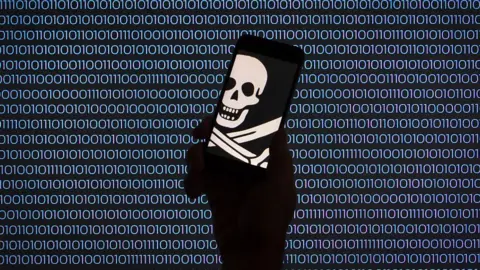EE to block pirate music mobile sites and apps
 Getty Images
Getty ImagesEE is to become the first UK mobile network to block access to pirate music websites.
Industry body the British Phonographic Institute (BPI) successfully petitioned the courts to block file-sharing site The Pirate Bay in 2012.
The High Court subsequently ordered broadband providers, including EE, to block more than 70 websites which allow people to download music illegally.
EE now plans to extend this ban to its mobile network.
An EE spokesperson said: "Historically the majority of piracy took place on fixed line networks, but as network speeds increase and content file sizes for music decreases, mobile networks are seeing a rise in piracy. EE believe in supporting content creators by combatting piracy across both our mobile and fixed networks."
Vodafone, Three, and O2 have been approached for comment.
'Make millions'
Online piracy costs the record industry £200m a year, the BPI says.
Kiaron Whitehead, a lawyer for the BPI, said: "A quarter of people now connect to the internet over 3G, 4G and 5G rather than broadband and wi-fi.
"That growth brings with it the risk of increased music piracy.
"The operators of these pirate sites make millions of pounds a year, without a penny going to the creators of the music they exploit.
"We are therefore pleased that EE - which was the first mobile network to launch 5G to the UK population - has now become the first mobile network to block pirate sites."
'Engaged consumers'
But Chris Elkins, co-founder and chief business development officer at Muso, a data company measuring unlicensed demand for digital content, told BBC News combating piracy was about more than simply blocking websites.
"One of the things we've found is there needs to be a combination of legal effort and site blocking," he said.
"Website blocking is really important... it needs to become routine and more cost-effective, and part of the arsenal that all media companies can utilise.
"And the legal offer - such as Spotify - is an example of a really positive service that has engaged consumers.
"It's about enforcing, making sure the piracy is harder to find, and creating stronger and stronger legal offers that the audience can engage with."
